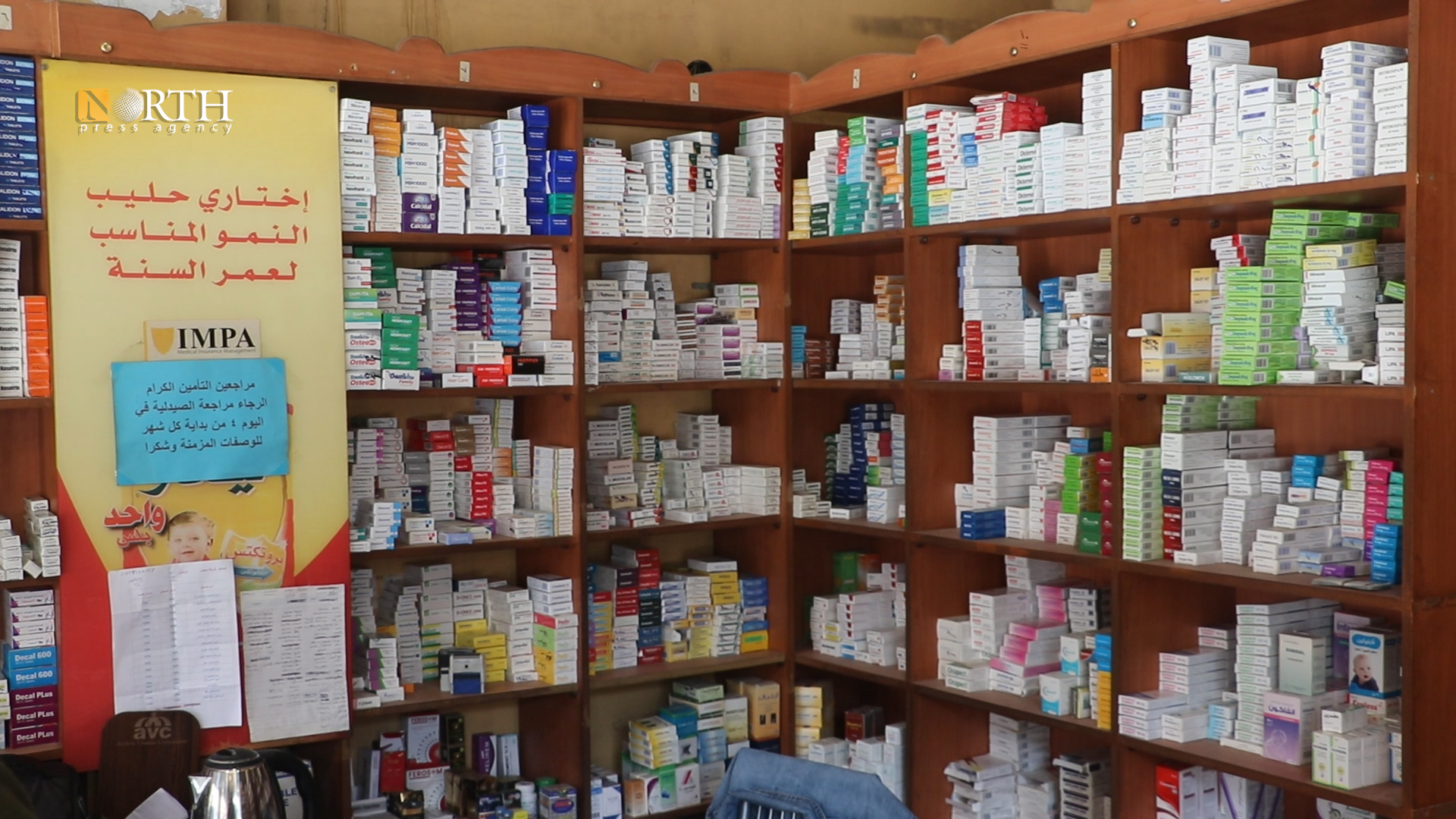QAMISHLI, Syria (North Press) – In an interview with North Press, Iyad al-Mosalet, an employee living in Hasakah, northeast Syria, did not hesitate to talk about his great struggle to obtain two doses of a certain medicine for his 88-year-old mother, who suffered a joint fracture.
The city of Qamishli and areas in north and east Syria are witnessing successive loss of drugs in addition to a continuous increase in their prices.
“I came from Hasakah to Qamishli in order to search for medicine, and I bought some medicine for 75,000 Syrian pounds (SYP) after it was 25,000 SYP few days ago,” al-Mosalet added.
Ismail Suleiman, a pharmacy owner in Qamishli, told North Press, “The drugs’ warehouses are adding near-expiry dated drugs in addition to the required drugs to the bill.”
He added that this was “the thing that pushed the pharmacists to add their price to the desired or medicines.”
Additionally, he accused drug warehouses of raising the prices and monopolizing the drugs.
Previously, the Autonomous Administration of North and East Syria (AANES) set 25% as a profit margin for pharmacies.
Suleiman pointed out that ” medicine labs in Damascus and Aleppo are raising the prices of drugs on daily basis.”
Meanwhile, Yazan Omari (a pseudonym), a warehouse owner in Qamishli, held the medicine labs in Damascus and Aleppo responsible for adding unneeded medicines to the bill.
“Areas of north and east Syria have been witnessing a medicine shortage for years,” Omari told North Press.
Last year, the AANES Health Board set 28% as shipping fees for medicines to be added to the medicine prices.
Omari considered the fees’ percentage suitable due to the royalties imposed by Syrian government forces’ checkpoints on medicine trucks, which may reach 24% of the medicines’ value.
On Thursday, co-chair of the Health Board of AANES Jiwan Mustafa told North Press, “The increase percentage added to the cost of the medicines, which is 28%, will remain constant.”
He denied future plans to raise this percentage.
Saad Ali, head of the Qamishli Pharmacists Union, told North Press, “The regions of northeast Syria are consumers of medicine and not productive,” and he ruled out finding “radical solutions to the problem of medicine loss or high prices.”
North Press obtained a copy of a statement issued by Pharmacists Union in Qamishli proposing the adoption of the private authorization law.
The private authorization law would name a single agent for each type of medicines available in the regions of northeast Syria by the medicines labs located in Damascus and Aleppo.
Ali added, “The adoption of the private authorization law is the best solution for this problem.”
Local specialists spoke about the importance of this decision in terms of reducing the prices of medicines and not losing them frequently.
Other specialists believe that the main problem in the shortage of medicines and their high prices comes from the medicines labs in Damascus and Aleppo.
Jiwan Mustafa said, “the decision to grant private authorization for medicines’ labs is under discussion.”
“The draft decision will be either approved or rejected before the end of March,” Mustafa told North Press.

